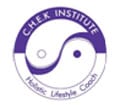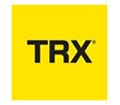Ever felt stuck….it might be the fear of failure?
You are not alone.
Science reveals that our brains are hardwired to avoid loss more intensely than to pursue gain.
This evolutionary trait, known as loss aversion, means that the pain of losing something is psychologically about twice as powerful as the pleasure of gaining something equivalent.
This bias can affect all your decisions – financial, relationships, health, fitness, careers, and personal growth.
Understanding this can help us overcome the invisible barriers holding us back to success.
What Is Loss Aversion and Why It Dominates Our Behavior
Loss aversion is a concept from behavioral economics introduced by Daniel Kahneman and Amos Tversky in 1979.
It describes how people tend to prefer avoiding losses over acquiring equivalent gains.
For example, losing $1,000 feels more painful than the pleasure of gaining $1000.
Our ancestors’ survival depended on avoiding threats more than seeking rewards.
This led to an evolutionary bias where the brain prioritizes loss avoidance.
In modern times, this manifests as a tendency to avoid challenges that carry a risk of failure, even when the potential rewards are significant.
How Loss Aversion Affects Your Health and Fitness Goals
Loss aversion can silently sabotage your health and fitness ambitions. Here are some key ways it shows itself:
-Avoiding New Workouts: Fear of looking foolish or failing can prevent you from trying new exercises or joining a gym.
-Sticking to Unhealthy Habits: The comfort of routine and fear of change can keep you locked into habits that don’t serve your long-term health.
-Fear of Investing in Yourself: You might avoid hiring a coach, trying a new program, or even buying quality food because of fear that the “investment” might not pay off.
-Skipping Social Activities: Concern about being judged might lead you to avoid group fitness classes or wellness events.
-Delayed Progress: All these fears lead to procrastination and missed opportunities, reinforcing the cycle of self-doubt and inaction.
Recognizing these patterns is the first step toward overcoming them.
When you understand that these fears are natural but not necessarily rational, you gain the power to challenge them.
Best Strategies to Overcome Loss Aversion
1.Reframe Failure: View setbacks as learning opportunities rather than evidence of inadequacy. This helps reduce the emotional sting of failure and opens up space for experimentation and growth.
2.Set Incremental Goals: Break big goals into smaller, manageable steps. Achieving micro-wins builds confidence and keeps you motivated, while reducing the fear associated with larger tasks.
3.Celebrate Effort, Not Just Outcomes: Focusing on effort encourages persistence. When you reward yourself for showing up and trying, rather than only for succeeding, it reinforces a growth mindset.
4.Seek Support: Surround yourself with a support network of friends, coaches, or communities that understand your journey and can offer encouragement, accountability, and perspective.
5. Focus on Long-Term Vision: Keep your larger “why” in mind—the deeper reason behind your goals. When you stay connected to a meaningful purpose, short-term discomfort becomes easier to bear.
Mindset Shifts: How High Achievers Use Fear as Fuel
Top performers in sports, business, and wellness often feel fear but they use it as a compass, not a barrier. Instead of interpreting fear as a stop sign, they see it as a signal that they are pushing boundaries.
Michael Jordan famously said he succeeded because he failed over and over again.
Turia Pitt (Aussie motivational speaker) rebuilt her life after severe burns, proving resilience can turn tragedy into triumph.
Dylan Alcott (Australian Paralympian) turned personal adversity into sporting greatness and advocacy.
These individuals normalize failure and use it as feedback.
They understand that fear and growth often live on the same path.
By adopting this mindset, you can start seeing fear not as something to avoid but as something that signals opportunity, growth and success.
Take Action: Break Free from the Fear
Understanding loss aversion is empowering, but taking action is essential to setting you free!
If you are ready to overcome the fear that is holding you back, consider scheduling a Free Wellness Consult to identify what you need to do to improve your health, fitness and mindset.
In this session, we will explore your goals, identify obstacles, and create a personalised plan to help you move forward confidently.
Cameron Corish has been caring and achieving results for the local Wishart, Mansfield and Mt Gravatt community for over 15 years. He takes a multi-disciplined and holistic approach to health and fitness addressing the physical, mental and emotional aspects of one’s health.
Ready to feel and look your best? Book a time for a FREE chat and see how we can make a difference in your life.
If you are not ready yet, come and join our community of health, fitness and wellness enthusiasts with our latest updates. When subscribing to our newsletter you will receive 3 welcome gifts!!
Scientific References
- Kahneman, D., & Tversky, A. (1979). Prospect Theory: An Analysis of Decision under Risk. Econometrica.
- (2025). Prospect Theory: What It Is and How It Works, With Examples.
- (2020). Global Study Confirms Influential Theory Behind Loss Aversion.
- (2025). Loss Aversion.














